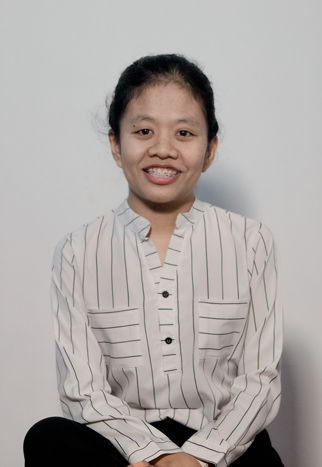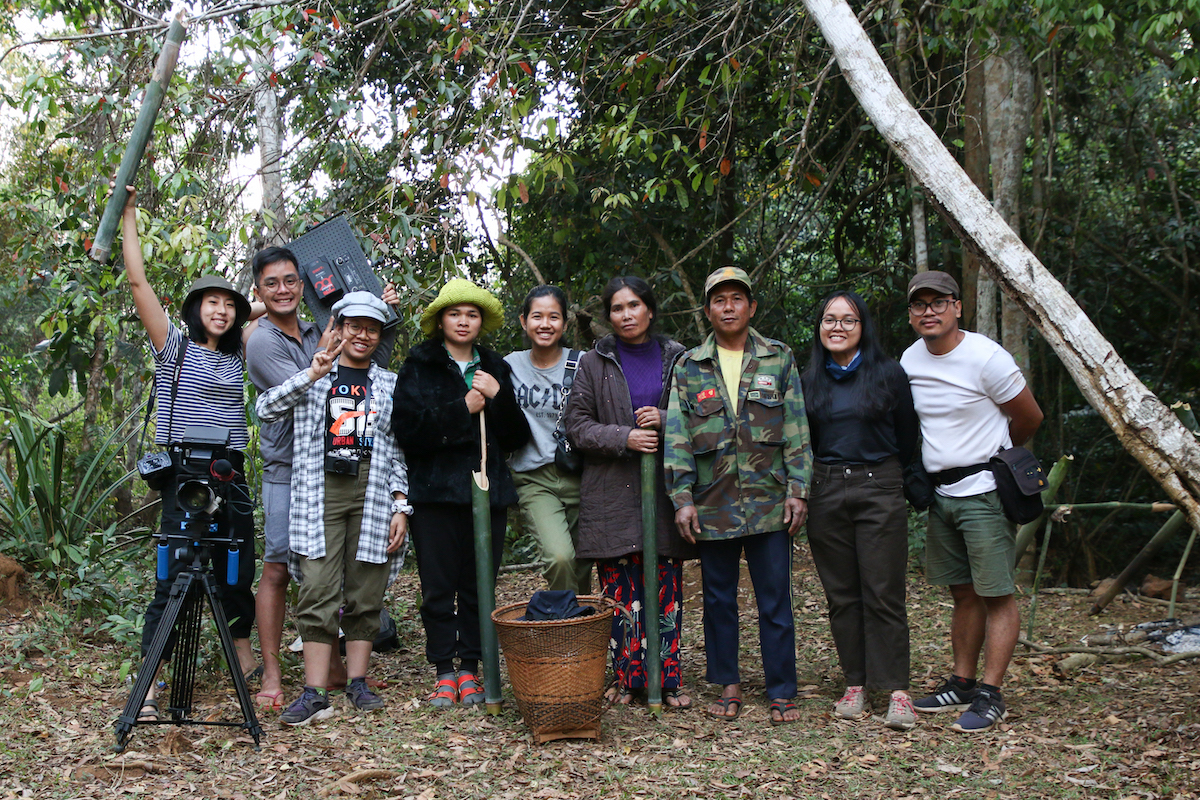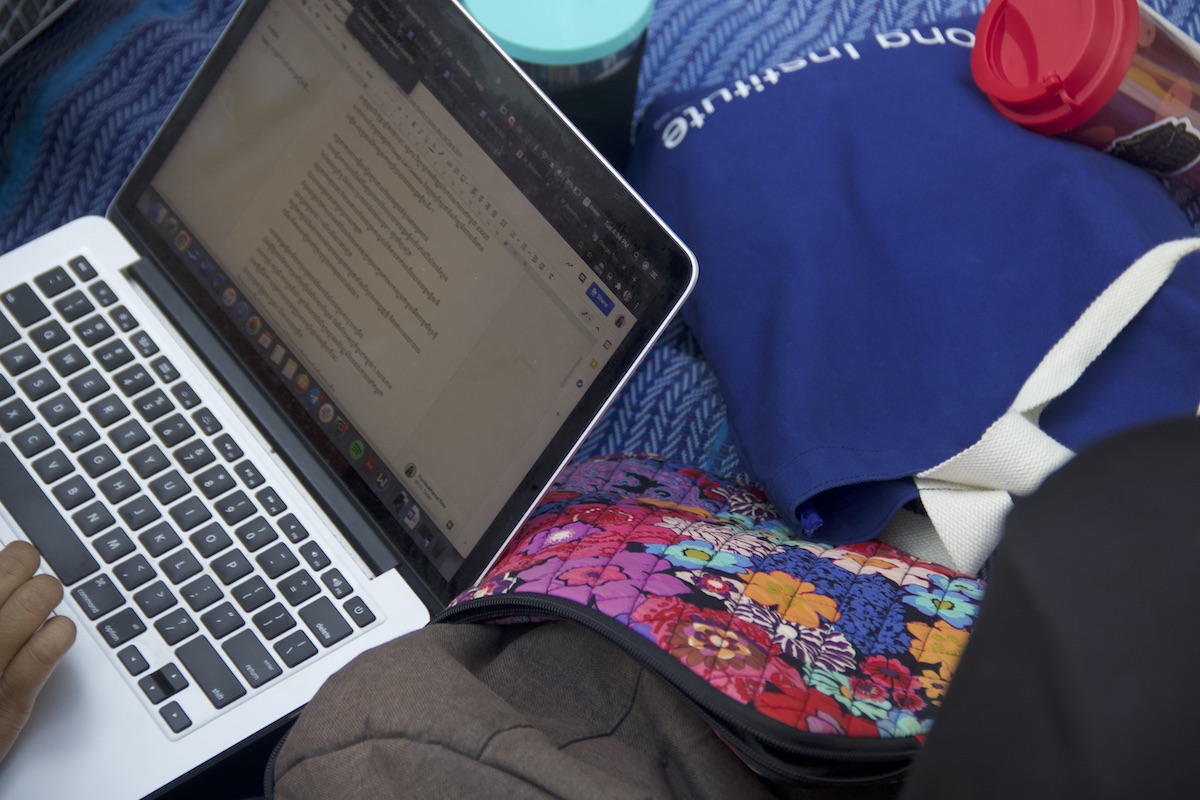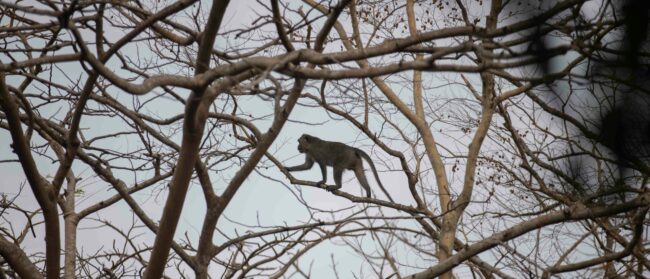About “Cambodian Eats!”
Cambodian Eats! addresses environmental issues through the lens of travel and foods that are synonymous with different places in Cambodia, as a way to capture the audience’s attention and engage with them in a more personal way. The series incorporates videos, feature articles, photos, and illustrations to highlight each location, showing the connection between local communities, the land they live on and the food they grew up with, while at the same time exploring how people’s lives are changing due to changes in the environment.
The project’s core audience is Cambodian youth and is designed to raise awareness around the social impacts associated with environmental issues. Through interviews with experts and professionals, Cambodian Eats! offers solutions that young people can consider implementing in their communities and personal lives.
An important aspect of the Cambodain Eats! series was the training of aspiring Cambodain media professionals. Over the four month production process, Focus recruited three trainees – Som Dara, Ro Kimlong (journalism students at a Phnom Penh university) and Dip Nasa (a recent graduate studying International Relations).
These trainees played an important role in the production of Cambodain Eats! writing feature articles, and receiving real world experience in video production, photography, social media management and much more. Below are their testimonials and personal perspectives of the experience.
Dip Nasa

I joined Focus’s Cambodian Eats! project in mid-January. Like an unexpected gift, I work in an office surrounded by professional journalists and media students. I chose to join the Focus team after my graduation, wanting to “find myself” and go beyond my field of study by exploring media and publications.
Cambodian Eats! focuses not only on food, but culture, identity and the environment, and gave me the opportunity to travel. I got a chance to explore new sides of the country, which I had never been to before. At the start of my journey, I hoped to receive more insight into media, and wanted to improve my journalism skills. During the project I learned a lot about how video production works, and during my reporting, I experienced first hand the research and communication that goes into the storytelling process.
One thing that went beyond my expectations was the issues that we featured in each episode. I had a chance to meet with and listen to people explain how their livelihoods and villages had changed over the years.
I was also met with some challenges along the way as media and journalism was a whole new field for me. As much as I love learning and exploring different things, there were times during the project when I struggled to even understand simple terms like “feature article’’ or “newsroom”.
Another self discovery moment occurred when I had a spell of anxiety when being tasked with writing a feature article in Khmer. I have been writing in English most of my academic and professional careers, so switching to Khmer, even though it is my native language, took quite some time to overcome the struggle of slow typing.
To me, the great thing about “Cambodia Eats!” is that it brings forth important topics and issues surrounding the environment to a young Cambodian audience providing lessons learned from each province. The signature dishes also introduce new generations to the diverse foods and geographies of our country.
Working on this project is probably one of the most memorable parts of 2021 so far. I got to travel, explore, learn about local communities, and communicate with diverse peoples. As much as I learnt doing this project, there will always be room for improvement.

Som Dara

Well, it has finally come to the end for the Cambodian Eats! program. I believe that most people might have seen a lot already about the products which we had been working on so far and I also believe that some people have already understood the message which the Cambodian Eats! program wants to spread. However, there might be some people who did not get the full message of this project too, so let me tell you one more time about what Cambodian Eats! work means.
Cambodian Eats! Is meant to illustrate the culture, identity, and lifestyle of people who live in different parts of Cambodia, while also reflecting on the environmental issue which those people have faced by telling their stories through the exploration of local cuisines. That is what the FOCUS team, and us trainees, have been working on so hard for the past four months.
Being a part of this program was a great opportunity and experience for me. Starting from finding sources until the publishing of an article, everything was an important lesson. At first, I thought that finding and contacting the sources was hard as we had never met before. I wondered “How can this be possible?”. However, I started to realize that this was a great opportunity for me to build my connections with new people. Also, it allowed me to learn how to control my nerves and build my confidence. After the discussion with local people, I had a better understanding of the way they live, their culture and the popular foods in their area. Also, I had the chance to communicate with some organizations which helped me to better understand the living conditions of others in Cambodia.
Everything was perfect for me until the lockdown happened due to the Covid-19 outbreak in Cambodia. Honestly, I am not a person who is good at writing or structuring stories so I often need a mentor to guide me. During the locking down things changed as everyone started to work from home and communications moved online. As you all may know, speaking through online calls is not the same as face to face. Another negative aspect of the lockdown was that I did not get a chance to travel to the province that I was assigned to cover and was unable to see everything with my own eyes.
In the end, Cambodian Eats! was a great opportunity for me to improve both my hard and soft skills. It taught me to see every corner of the world, not only what is directly around me. It taught me how important a clean environment is and showed me how youth, like myself, can contribute to protecting the environment and natural resources. Finally, it gave me a chance to learn about and experience how a newsroom works, which is important for a journalism student like myself. Thank you Cambodian Eats! and the Focus team for all these great lessons and the help along the way.

Ro Kimlong

When I received the email announcing I had passed the interview for the Cambodian Eats! project, I thought it was a blessing to get into the real world and out of my comfort zone to learn spectacular things for my portfolio. Joining the Focus team, I had a chance to meet people from different backgrounds with different strengths and skill sets and see first hand what is needed to run a publication.
My sole purpose in entering the training program was to strengthen my journalism skills while exploring my interest. During the program I had the opportunity to not only work on the Cambodian Eats! project but I also participated in the newsroom and wrote other unrelated articles. For me, the journey was fascinating and challenging at the same time.
For Cambodian Eats! everything was prepared for our journey to the different provinces to produce the series, but unfortunately the outbreak of Covid-19 forced us to cancel the initial plan of producing videos for every location. The inability to travel made production very challenging since we had to work from home most of the time and contact the sources in the provinces digitally. To be flexible, we shifted away from the videos and moved to a text only format, so unfortunately I was unable to go on location with the team as we had originally planned.
During the project I found myself getting out of my comfort zone. Before, I was timid to interview people, especially strangers as I thought I was consuming someone’s time while they could use that time more productively. I learned that one of the important goals of a journalist is to give a voice to the voiceless and share it with those who need to hear it.
The most interesting thing I experienced and learned was the need to be well prepared for interviews. During some phone interviews, I sometimes would miss questions that needed a follow up. When I found out that I had not received some in-depth information, I had to follow up with them again later. I have gradually learned from my mistakes and I am more prepared for future experiences.
During my traineeship, I learned a lot about the significance of certain ingredients, such as crab and palm sugar and the natural world they come from. Moreover, I learned how traditional careers which people depend on for their livelihoods are significantly connected to the environment and what would happen if the current environmental issues continue on as is. The process of communicating and researching enlightened me to new information that is essential for our society to learn about during this challenging period.
Although the project cannot reach the whole population of Cambodia I hope it might have gotten into the hearts of those who have seen it or helped enlighten those who had no clue about how some of their actions may contribute positively or negatively to the environment. People tend to take things for granted but Cambodian Eats! might provide inspiration to people to think harder about what they are consuming.
To conclude, my traineeship was exciting and challenging while I have discovered a lot of knowledge and interests along the way. The project and training has improved my mentality and skills as a journalist, while hopefully delivering important information to our audience.



